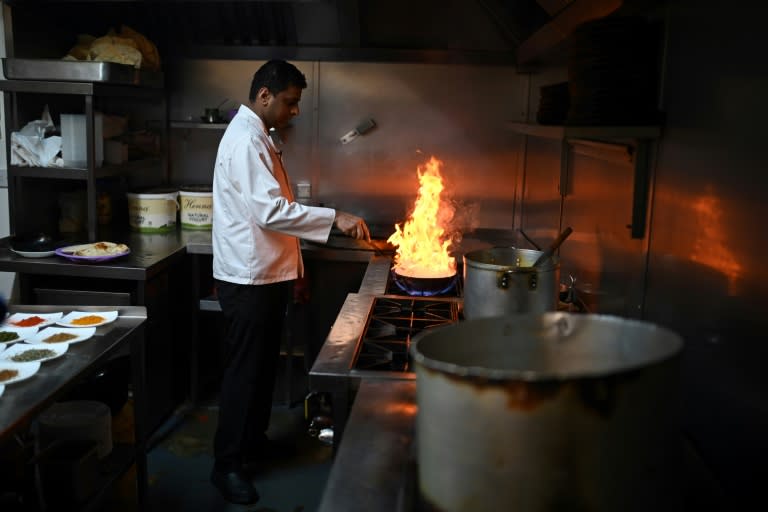Birmingham residents are fighting to save the gastronomic heritage of Pakistani origin


Balti, a dish with Pakistani influence, was so popular in Birmingham that it gave the neighborhood its name. But they are now on the verge of extinction, and with them part of the legacy of the UK’s second city.
Spices, coriander, onions, tomatoes, green peppers, meat or fish, all cooked over a fire in an oval metal pot.
The traditional “Balti” was established by Pakistani immigrants in the mid-1970s to feed patrons of the neighborhood’s Irish pubs.
It had its heyday in the 1990s, when more than 30 restaurants served it in this area of south Birmingham, bounded by Stratford Road, Taunton Road and Ladypool Road, renamed the Balti Triangle.
But today there are only four people left, laments Andy Munro, 72, a native of the English city centre, who is fighting alongside other residents to save this “Birmingham heritage”.
As he strolls down Ladypool Street, “the center of what used to be the Balti Triangle,” he points out the steakhouses, burger joints and cake stands that have replaced them. It is a sampling of the new culinary habits and changing profiles of the neighborhood, whose population has diversified and Irish pubs have closed.
The neighborhood became fashionable in the ’90s, and “the business owners thought they could raise the rents. But they were family businesses and they couldn’t afford more,” Monroe explains.
In other cases, the children of these first generations of Pakistani immigrants did not want to carry on the family tradition.
This was not the case for Zaf Hussain, who took over Al Shabab, a restaurant that his father and brother had run for a long time.
In his tiny kitchen, he eagerly explains and demonstrates how to prepare the symbolic dish, served straight from the source on which it was cooked.
In a gesture that he’s quite adept at, he pours oil, curry powder, coriander, and other spices into the dish, along with chicken nuggets, then drizzles them with a little broth.
The warm and spicy scent fills the room. Within a few minutes, it is ready to eat.
– legendary –
“I want to preserve this legacy. I want to preserve this heritage for my family and for Birmingham,” says the man who learned to cook “Balti” as a teenager.
It is “a legendary Birmingham dish,” he insists. Even the pot in which it is cooked is made in a factory a few kilometers from the city.
Shabazz Khan, son of the owner of Shahi Naan Kebab, adds the latest survivor among the Balti restaurants.
Pub patrons have been replaced by a more familiar crowd, who like to take their time over meals but still enjoy their meals.
This dish is “the best in the world,” enthuses David Barrera, 38, who has been coming to eat in the neighborhood since he was a kid, sitting at a table in “Youth.”
“It’s sad to hear (restaurants) are closing, but… come on a Friday night, everything is full on weekends,” he says.
The origin of the name “Balti” remains unclear, but one interpretation states that the word means “bucket” in Urdu, referring to the vessel in which it was prepared.
In order to preserve the “original Balti”, its defenders have tried to have its heritage status recognized at the European level. “But then Brexit happened, and unfortunately it’s no longer possible,” explains Munro, who is now trying to bring the council into his fight.
Meanwhile, al-Husayn does not lose his ambition and undertakes works to expand his headquarters. “Even though restaurants in the neighborhood have declined, we’re still positive and moving forward,” he says.
mhc / acc / mas / zm

“Pop culture advocate. Troublemaker. Friendly student. Proud problem solver.”







